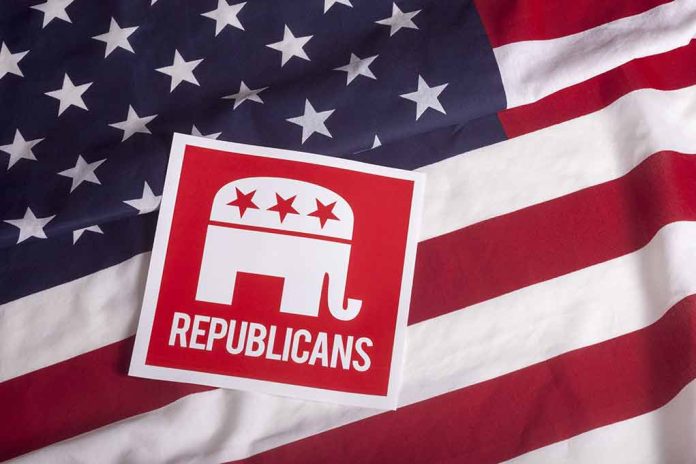
House Republicans have introduced a budget reconciliation bill that would end the IRS Direct File program within 30 days, replacing it with a public-private partnership model that partners with tax giants like TurboTax and H&R Block.
Key Takeaways
- The GOP budget reconciliation proposal would terminate the IRS Direct File program and replace it with a public-private partnership system
- A task force would be created to establish collaboration between the IRS and private tax preparation services like TurboTax and H&R Block
- Up to $15 million would be allocated for Treasury analysis on implementing a system that would allow 70% of taxpayers to file for free
- The Direct File program, which expanded to half the country this year, filed 140,803 returns during its pilot phase in 12 states
- Treasury Secretary Scott Bessent has committed to maintaining Direct File for the current tax season despite the proposal
GOP Tax Reform Strategy Targets IRS Direct File
House Republicans are advancing a budget reconciliation bill that includes provisions to dismantle the IRS Direct File program as part of President Trump’s broader tax reform agenda. The proposal aims to terminate the program within 30 days of the bill’s enactment, shifting to a public-private partnership model that would involve major tax preparation companies. This move aligns with the President’s call for lawmakers to pass legislation cutting government spending to offset approximately $4.5 trillion in tax cuts.
The Republican-backed budget bill proposes establishing a task force that would create a collaborative framework between the IRS and private tax-preparation services like TurboTax and H&R Block. This partnership would aim to provide approximately 70% of American taxpayers with a free tax filing option, potentially expanding access beyond what the current Direct File program offers. The transition would represent a significant shift in how the government approaches tax filing services.
Analyzing Costs and Implementation
The bill authorizes the Treasury Department to utilize up to $15 million to conduct a comprehensive analysis of the costs and feasibility of replacing Direct File with the proposed public-private service. This analysis would evaluate whether the new system could effectively deliver free tax filing options to more than two-thirds of U.S. taxpayers. The funding demonstrates Republicans’ commitment to thoroughly examining alternatives before fully implementing a replacement system.
The Direct File program began as a pilot initiative in 2024, allowing taxpayers in 12 states to file their federal tax returns online at no cost. Following what the IRS considered a successful trial run with 140,803 returns filed, the agency announced in May 2024 that Direct File would become permanent. The program has since expanded to approximately half the country for the current tax year, though its future is now uncertain under the Republican proposal.
An under the radar part of Republicans' tax plan: they're going to end the incredibly popular free direct tax filing service. Trump will force you to fork out hundreds of dollars each year to TurboTax so he can give tax breaks to billionaires. https://t.co/bzxU1BJYEn
— Ron Wyden (@RonWyden) May 14, 2025
Political Debate Over Tax Filing’s Future
Democratic lawmakers have voiced strong opposition to the proposed elimination of Direct File, arguing that the program provides valuable services to everyday Americans. Their resistance highlights the partisan divide over the government’s role in providing direct tax services versus facilitating private sector solutions. Democrats maintain that Direct File offers a secure, efficient option that should remain available nationwide rather than being replaced.
“ending Direct File would hurt everyday Americans,” said Democratic lawmakers.
Despite the push to eliminate the program, Treasury Secretary Scott Bessent has assured taxpayers that Direct File will remain operational for the current tax season. “I will commit that for this tax season that Direct File will be operative and the American taxpayers who choose to use it will,” Bessent stated, indicating that any changes would not disrupt filing procedures already underway. This commitment provides a transition period regardless of the bill’s outcome.
Broader Government Tech Reform
The potential elimination of Direct File appears to align with broader efforts to restructure government technology programs. Trump adviser Elon Musk specifically mentioned plans to terminate 18F, the federal technology agency involved in developing Direct File and other digital government services. This suggests the move is part of a larger strategy to reevaluate how the government delivers technological solutions and interfaces with private industry, reflecting the administration’s preference for market-based approaches.
As the budget reconciliation bill moves through the legislative process, taxpayers who currently use or plan to use the Direct File system should monitor developments closely. While immediate changes aren’t expected during the current tax season, the proposal signals a potential significant shift in tax filing options for future years. The outcome will ultimately depend on congressional action and the administration’s implementation of any approved changes to the tax filing landscape.



